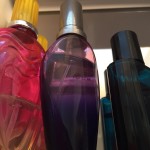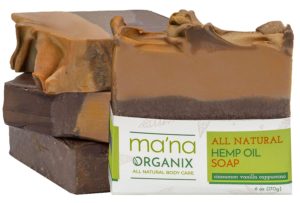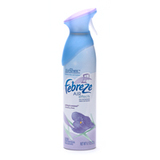
Do you hate the thought of going to the office because you can’t stand the overpowering smells of aftershave or perfume at work?
Air pollution at work due to fragrances your colleagues wear has become almost as big an issue as secondhand smoke used to be.
Both are about indoor air quality and public health. Secondhand smoke affects the lungs and can cause cancer.
Synthetic chemicals like those found in perfume affect the nervous system and can cause debilitating headaches, nausea, joint pain and respiratory discomfort.
These conditions are magnified for people suffering from multiple chemical sensitivity (MCS) — symptoms like fatigue, dizziness, congestion, sore throat, chest pain, diarrhea and breathing problems — which can all be linked to contact with low levels of chemicals such as those in perfume at work.
“Fragrance is a known respiratory irritant and neurological toxin,” writes researcher Christy De Vader of Loyola University of Maryland.
“For many people, such as those exposed to asthma, exposure to perfume can pose serious health risks such as migraines, nausea, tightening of the throat, and respiratory impairment.”
If you already suffer from hay fever and asthma, smelling synthetic fragrance can make it worse.
How Perfume at Work Makes Us Sick
The fragrances used in most commercial perfumes and aftershave lotions are actually made up of chemical compounds, many derived from petroleum or coal tar.
Over the past 50 years, notes Loyola’s De Vader, 80-90 percent of fragrances have been synthesized from petroleum.
They may also contain acetone, phenol, toluene, benzyl acetate and limonene, toxic chemicals that have been linked to a whole host of human illnesses.
The fragrance industry uses over 4,000 chemical ingredients to make their products and over 80 percent of these chemicals have not been tested for their toxicity, reported the Canadian Union of Postal Workers in their 2003 Health and Safety Bulletin.
Even if you choose unscented products, they may still contain fragrances that could trigger a rash or allergic reaction, Prevention magazine reported in August, 2001. “Unscented” products could actually contain other chemicals that block unpleasant ingredient odors.
And if your coworkers aren’t using perfume, cologne or aftershave, they could still be applying lotions, hairspray, deodorant and even sunscreen infused with synthetic fragrances. For those who are particularly chemically sensitive, even that can be too much.
Some companies are taking matters into their own hands and putting policies in place that restrict employees from coming to work smelling of any kind of fragrance.
√ Talk with your human resources department. If necessary, provide a note from your doctor explaining how your sensitivity to fragrance is affecting your health and work performance.
√ Ask to remove fragranced products such as deodorant, hair spray, aftershave or perfume in restrooms, or get them replaced with products that are truly fragrance-free.
√ Install air purifiers, or put a small fan on your desk to keep air circulating. You may also need to wear a respirator mask.
√ Ask employees to voluntarily limit use of fragranced products if your workplace won’t institute a policy.
√ Work from home as much as possible.
Encourage your employer to follow the lead of the U.S. Centers for Disease Control. They’ve had a fragrance-free policy in effect since 2009 that not only includes perfume at work, but also:
⇒ Incense, candles, or reed diffusers
⇒ Fragrance-emitting devices of any kind
⇒ Wall-mounted devices, similar to fragrance-emitting devices, that operate automatically or by pushing a button to dispense deodorizers or disinfectants
⇒ Potpourri
⇒ Plug-in or spray air fresheners
⇒ Urinal or toilet blocks
⇒ Other fragranced deodorizer/re-odorizer products
Further, “Personal care products (e.g., colognes, perfumes, essential oils, scented skin and hair products) should not be applied at or near actual workstations, restrooms, or anywhere in CDC-owned or leased buildings.”
CDC also encourages employees to be as fragrance-free as possible when they arrive in the workplace.
“Fragrance is not appropriate for a professional work environment, and the use of some products with fragrance may be detrimental to the health of workers with chemical sensitivities, allergies, asthma, and chronic headaches/migraines,” the organization says on its website.
“Employees should avoid scented detergents and fabric softeners on clothes worn to the office. Many fragrance-free personal care and laundry products are easily available and provide safer alternatives.”
Has your employer put a fragrance-free policy in place? If not, send a copy of the American Lung Association policy and encourage other employees to limit perfume use.








Hi, Diane. Thank you for your contemporary writing. It is really a disgusting matter that some colleagues at office use perfume such as way that it makes other sick. I agree with you that this happens mostly because of containing acetone, phenol, toluene, benzyl acetate & limonene and toxic chemicals.
Yes, all those fragrances can make people sick. It’s best to leave the perfume home!
I am a person who enjoys the pleasure of clean non toxic air in my indoor environments out of necessity. It takes just one person wearing a fragranced product in a room where I am in to initiate an athsma attack. Imagine the challenges people like me face when they need to take public transportation, go to a class, or work with the general public in a confined space. Worse, however is trying to explain why I object to being poisoned. I welcome the CDC protocals and refer to them often when I explain my simple needs.
I’m like you! I really hate overpowering fragrances and synthetic smells. I hope more people learn to limit their use of perfumes and air fresheners.